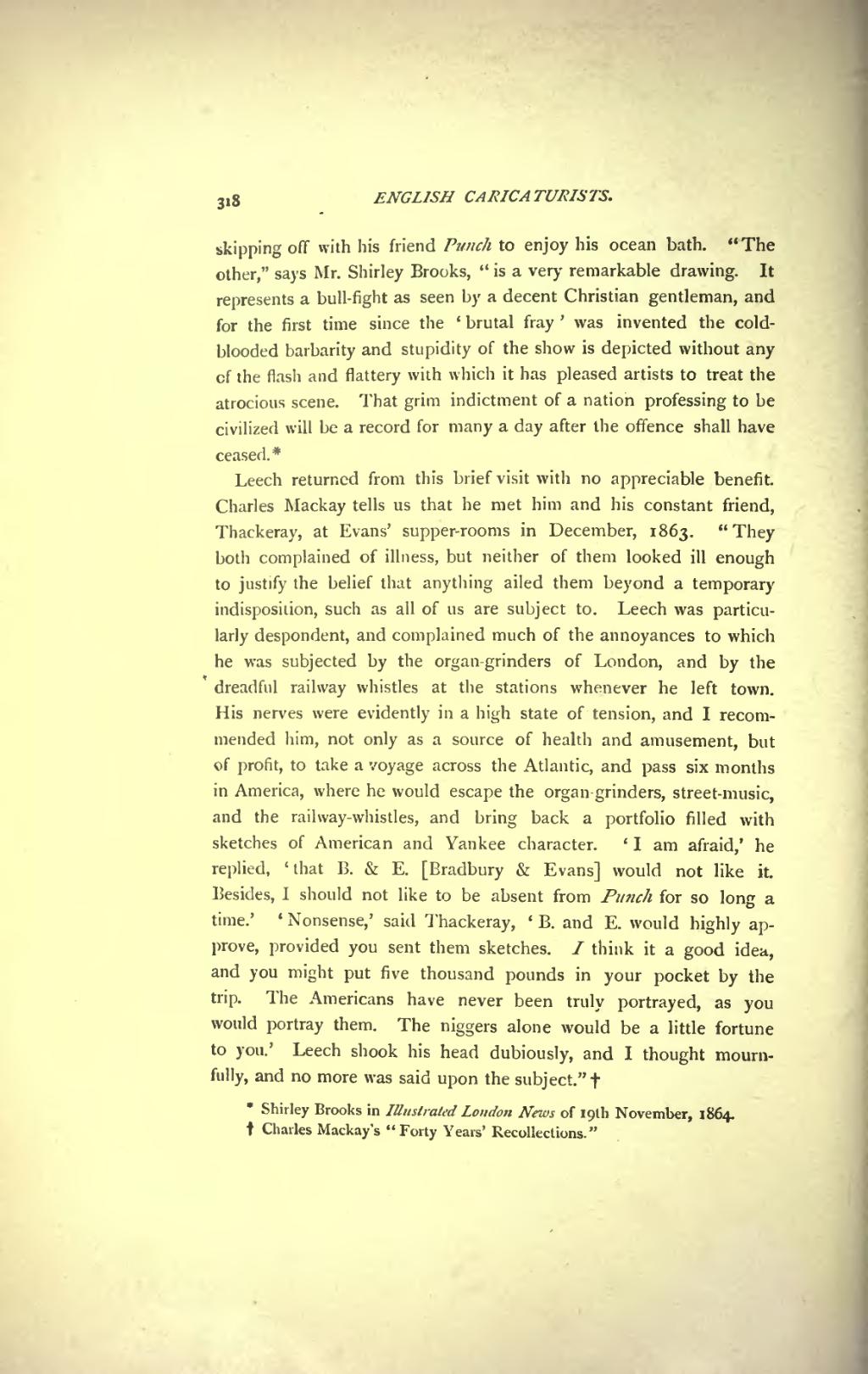skipping off with his friend Punch to enjoy his ocean bath. "The other," says Mr. Shirley Brooks, "is a very remarkable drawing. It represents a bull-fight as seen by a decent Christian gentleman, and for the first time since the 'brutal fray' was invented the cold-blooded barbarity and stupidity of the show is depicted without any of the flash and flattery with which it has pleased artists to treat the atrocious scene. That grim indictment of a nation professing to be civilized will be a record for many a day after the offence shall have ceased.[1]
Leech returned from this brief visit with no appreciable benefit. Charles Mackay tells us that he met him and his constant friend, Thackeray, at Evans' supper-rooms in December, 1863. "They both complained of illness, but neither of them looked ill enough to justify the belief that anything ailed them beyond a temporary indisposition, such as all of us are subject to. Leech was particularly despondent, and complained much of the annoyances to which he was subjected by the organ-grinders of London, and by the dreadful railway whistles at the stations whenever he left town. His nerves were evidently in a high state of tension, and I recommended him, not only as a source of health and amusement, but of profit, to take a voyage across the Atlantic, and pass six months in America, where he would escape the organ-grinders, street-music, and the railway-whistles, and bring back a portfolio filled with sketches of American and Yankee character. 'I am afraid,' he replied, 'that B. & E. [Bradbury & Evans] would not like it. Besides, I should not like to be absent from Punch for so long a time.' 'Nonsense,' said Thackeray, 'B. and E. would highly approve, provided you sent them sketches. I think it a good idea, and you might put five thousand pounds in your pocket by the trip. The Americans have never been truly portrayed, as you would portray them. The niggers alone would be a little fortune to you.' Leech shook his head dubiously, and I thought mournfully, and no more was said upon the subject."[2]
- ↑ Shirley Brooks in Illustrated London News of 19th November, 1864.
- ↑ Charles Mackay's "Forty Years' Recollections."
